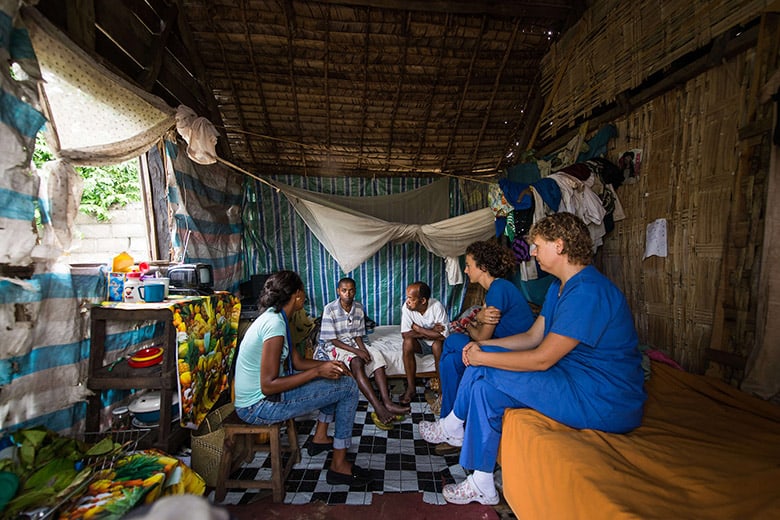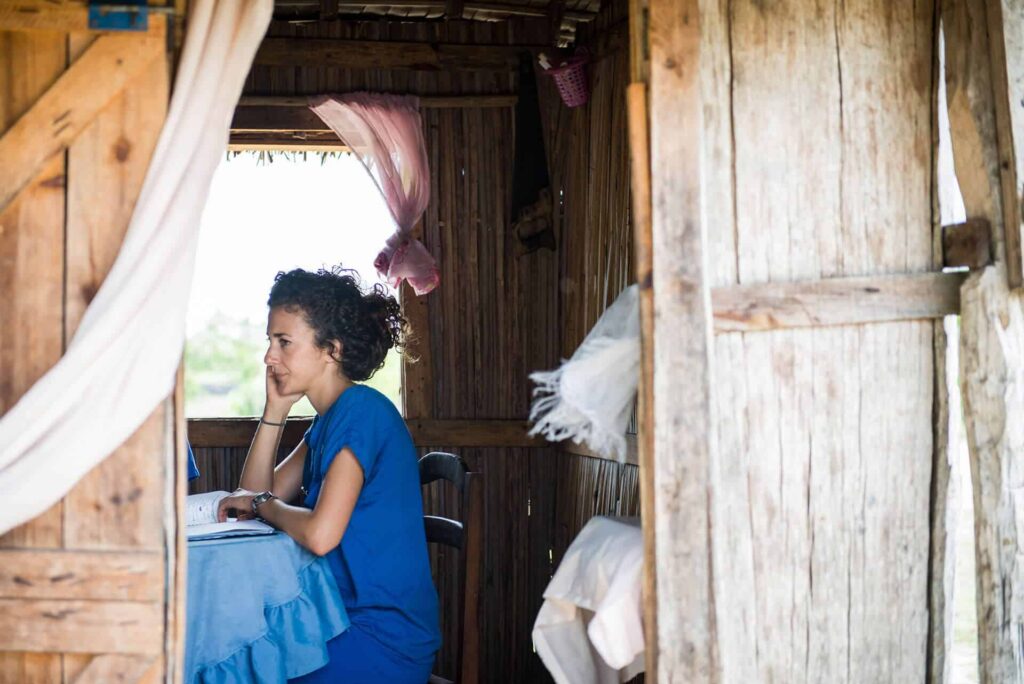
Dignity for the terminally ill
Providing palliative care in developing nations

Canadians Irik and Cathy Mallie have served with the Africa Mercy since 2009. Irik works as the ships chief engineer for the Engineering department and Cathy is the palliative care counselor for the Palliative Care department on the ship.
Dignity in Developing Nations
Culture of the Now
Many people in Africa live day to day, with little thought or concern for the future. This oversight often leads to a lack of planning in many realms of life, including the inevitability of death. This becomes even more apparent in the presence of terminal illness, when families do not possess sufficient knowledge to help their loved one come to the end of their life in peace, comfort and dignity.
The Problem
Often, people who request surgical or medical help from Mercy Ships are unable to receive assistance because of inoperable and terminal conditions. Many of these people who are physically suffering from incurable diseases are also suffering from rejection, misunderstanding and fear by their friends, families and communities. There are few, if any, groups within the community who provide counseling, support and end-of-life care to grieving families.
The Mercy Ships Palliative Care Team compassionately serves those who cannot be helped by the ship’s surgical staff. Physical, psychological, social and spiritual needs are addressed by the team’s medical and counseling staff.
Providing Education, Comfort and Peace
Why Palliative Care?
Palliative care is an approach that improves the quality of life of patients and their families facing the difficulties associated with life-threatening illness. This is accomplished through the prevention and relief of suffering by means of early identification and impeccable assessment and treatment of pain and other problems – physical, psychosocial and spiritual.
We Seek to Empower and Restore
- Provides relief from pain and other distressing symptoms
- Affirms life and regards dying as a normal process
- Intends neither to hasten nor to postpone death
- Integrates the psychological and spiritual aspects of patient care
- Offers a support system to help patients live as actively as possible until death
- Offers a support system to help the family cope during the patient’s illness and in their own bereavement
- Uses a team approach to address the needs of patients and their families, including bereavement counseling, if indicated
- Will enhance quality of life and may also positively influence the course of illness
- Is applicable early in the course of illness, in conjunction with other therapies that are intended to prolong life, such as chemotherapy or radiation therapy
- Includes the investigations needed to better understand and manage distressing clinical complications
Accomplishment
Since 2005, Mercy Ships has provided Palliative care for more than 330 patients and trained caregivers.
Palliative Care
Other Health Topics
Statistics (Source: WHO)
- At least one in every 200 individuals each year in Africa needs palliative care. There are clear gaps in the ability of existing health services to provide even basic care for the terminally ill.
- Each year an estimated 40 million people are in need of palliative care, 78% of whom live in low- and middle-income countries. For children, 98% of those needing palliative care live in lowand middle-income countries, with almost half of them living in Africa.

“I love that Mercy Ships brings people from all over the world trained in various places and careers to use their knowledge and abilities to make miracles happen every single day.”


